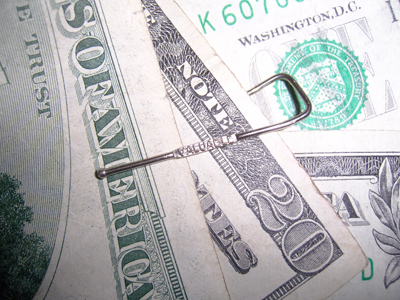All Nonfiction
- Bullying
- Books
- Academic
- Author Interviews
- Celebrity interviews
- College Articles
- College Essays
- Educator of the Year
- Heroes
- Interviews
- Memoir
- Personal Experience
- Sports
- Travel & Culture
All Opinions
- Bullying
- Current Events / Politics
- Discrimination
- Drugs / Alcohol / Smoking
- Entertainment / Celebrities
- Environment
- Love / Relationships
- Movies / Music / TV
- Pop Culture / Trends
- School / College
- Social Issues / Civics
- Spirituality / Religion
- Sports / Hobbies
All Hot Topics
- Bullying
- Community Service
- Environment
- Health
- Letters to the Editor
- Pride & Prejudice
- What Matters
- Back
Summer Guide
- Program Links
- Program Reviews
- Back
College Guide
- College Links
- College Reviews
- College Essays
- College Articles
- Back
The Effects Of Money
A lot of the people you’ll meet in life will be rude, ornery, and just plain selfish. However, this may not be just because of their attitude. The amount of money a person has and their social standing can and will make people treat those around them with less respect. They will often flaunt themselves, brag about their status and the money they’ve made, and assume that they were chosen to have a leg up in life even though they had been randomly given their standing.
This was shown in a rigged game of monopoly set up by a team of psychologists, where one of the players was given double the money, rolled 2 dice instead of 1, and collected double the money when passing go. The rich student at first reacted to the inequality by finding it weird but not caring much about the difference. Soon, however, he becomes, much more cocky, pushing his piece quickly across the board as he plays. He also begins to spread out his limbs, stretching his arms to the ends of the table. Later in the game, he starts to smack his piece against the board as it moves, banging his piece along till he smashes it to a stop, making the table shake. He also starts to move the ‘poorer’ students piece for him. When the game begins to end, he stops showing off, and quickly zips his piece around the board, unwilling to look the ‘poorer’ student in the eyes as he takes his money. He’s become a different person just by receiving a leg up in a game. “Putting someone in a role where they’re more privileged and have more power in a game makes them behave like people who actually do have more power, more money, and more status,” says Paul Piff, the psychologist that ran this experiment. In some other experiments he’s done, including leaving people of different social status in a room with candy meant for children, Piff’s found that, “while having money doesn’t necessarily make anybody anything, the rich are way more likely to prioritize their own self-interests above the interests of other people” The more rich the person was, the more candy they would take. It seems that just the amount of money you have can make you more self-preserving, but that’s not the only thing that can make you greedy.
It turns out that just the sight of money can increase a person's feeling of selfishness. Through a series of several experiments, researchers found that money made people want to meet their goals and worsened their behavior towards others. The researchers who conducted these experiments said that the study had nothing to do with making someone feel wealthy, since all the experiments involved showing the participants real money, fake money, and even pictures of money, which made them more selfish. A bunch of the experiments involved splitting a group of 50 undergraduate students into 2 groups. One group was primed with the concept of money, while the other was controlled but not influenced. After one group was given the thought of money, each person was given an unrelated questionnaire with a challenging question, and students were told that they could ask for help whenever they wanted. The “money” students took much longer before asking for help. In another experiment, a supposed student walked into the room while the students were taking the questionnaire, and asked for help. The controlled group volunteered about 42 minutes of their time, while the money students volunteered 25 to 0 minutes. They also found that money affects social relations as well. When scientists told each participants that they would talk with another student to get to know each other, they told the participant to set up 2 chairs while they fetched the other participant. The money students put more space between the 2 chairs compared to the controlled students. Also, when students were offered the two options of an in-home catered dinner versus four cooking lessons, the money students were much more likely to choose individually focused activities rather than be in a group with other students.
The overall message from both of these studies is that money is one of the biggest causes of people having an ornery attitude. The monopoly test proves this by giving a random person the upper hand, while the second set of tests prove that even with just the image of money, you can become a lot ruder. Yet these tests can indeed be wrong. There are definitely some non-wealthy people who are rude, and some of the rich can be kind-hearted. It just goes to show that though your social status can affect your personality, it doesn’t have to.

Similar Articles
JOIN THE DISCUSSION
This article has 0 comments.
